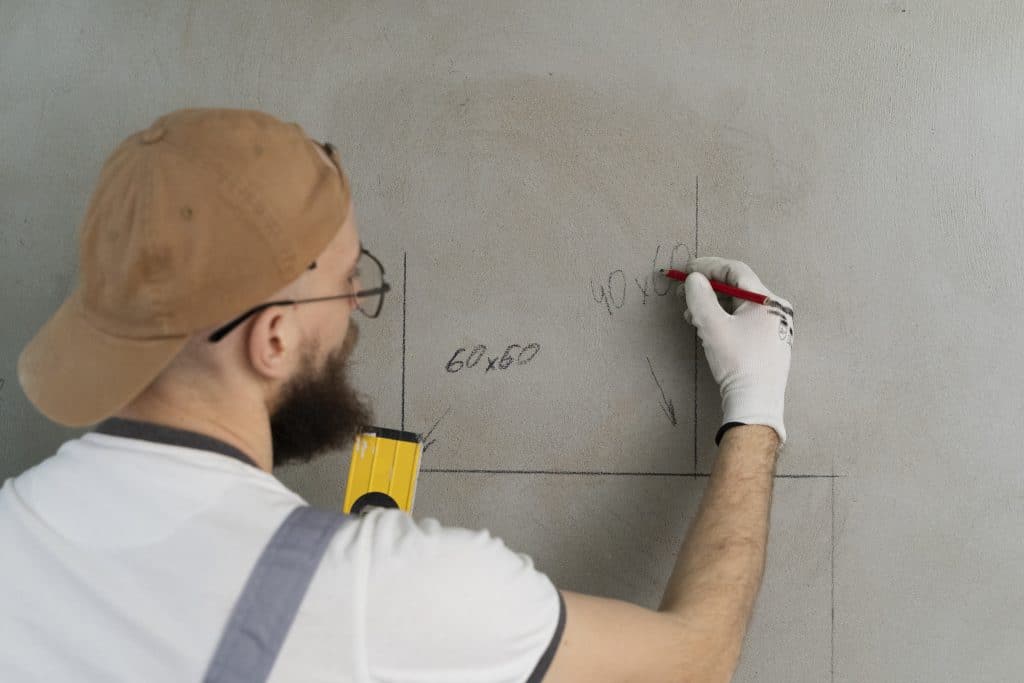Contents
- 1 Recognizing Deceptive Underpinning Offers
- 2 Red Flags in Basement Underpinning Contracts
- 3 Evaluating Legitimate Basement Underpinning Costs
- 4 Understanding Underpinning Methods and Scams
- 5 Ensuring Valid Warranty Coverage
- 6 Verifying Contractor Credentials and References
- 7 Avoiding High-Pressure Sales Tactics
- 8 Protecting Against Senior Targeted Underpinning Fraud
- 9 Conclusion
- 10 Basement Underpinning Fraud and Scams FAQ
The first thing that a homeowner who wants to renovate their home should pay attention to is the basement. Unfortunately, fraud in this area is common and can lead to financial loss. But how exactly can a homeowner avoid becoming a victim of fraud?
Anyone planning home improvement work involving structural changes needs to be aware of the possible risks. This will help you to choose reliable professionals and avoid costly fraud.
Recognizing Deceptive Underpinning Offers
Beware of underpinning quotes that seem unrealistically low. Such pricing often leads to subpar work or additional, unforeseen costs.
- Extremely low prices can signal inadequate service;
- Hidden fees may emerge after the project starts;
- Quality materials and skilled labour have their cost;
- If it seems too cheap, it probably lacks quality.
When we talk about the costs associated with basement underpinning, you need to understand that pricing can vary significantly based on the project’s scope, materials used, and regional labour rates.

A savvy homeowner would obtain multiple estimates to compare if he’s receiving a competitive offer and scrutinize the details to avoid expensive, unnecessary services. Remember, a well-negotiated deal secures your investment in your property’s long-term stability and value.
Project details
A public offer should contain a detailed plan of work. If the plan is vague, it is a cause for concern. The legal one should spell out each step for transparency and accountability on both sides. Lack of specificity reduces the level of responsibility of the contractor, which can lead to poorly executed or incomplete work.
Clear timelines
Offers without timelines suggest disorganization or an intent to delay. Projects need clear deadlines for efficient progress and completion within reasonable timeframes.
Absence of schedule often leads to prolonged projects and increased inconvenience for homeowners.
The basement underpinning in Hamilton strengthens foundations but requires expertise.
Fraudulent offers lack crucial elements:
- Detailed contracts outlining all tasks;
- Transparent pricing reflecting true underpinning costs;
- Defined timelines ensuring timely delivery;
- Necessary permits indicating legal compliance.
WillFix approaches basement waterproofing in Toronto with integrity, treating each job as if on their own home. They prioritize customer satisfaction through honest communication and thorough planning.
Red Flags in Basement Underpinning Contracts
Contracts should clearly outline payment terms. If they don’t, it’s a red flag. Look for specific dates and amounts. Avoid contracts with vague milestones or undefined costs.
A contract that lacks detail may lead to unexpected expenses. This could be an indicator of basement underpinning fraud and scams.
No termination clause
Every contract needs an exit strategy. Check for termination clauses that protect both parties’ interests. The absence of such clauses can trap you in unfavourable terms, even when the project faces issues like encountering bad soils or other complications.
Evaluating Legitimate Basement Underpinning Costs
To gauge the fairness of a basement underpinning quote, compare it with regional averages. Research shows that prices can vary widely based on location and scope.
A contractor’s quote should align closely with these figures. If the cost is significantly lower or higher, this could indicate potential fraud. Look for detailed quotes that specify labour, materials, and permit fees.
Cost breakdown
Understanding the breakdown of costs is important in evaluating a quote’s legitimacy. A transparent cost breakdown helps identify what you’re paying for.
Contractors should itemize expenses such as labour, materials, and necessary permits. This clarity ensures you’re not overcharged and aids in preventing scams where vague estimates lead to inflated final bills.
Upfront payments
Be wary of contractors demanding large upfront payments without clear deliverables. It’s common practice to provide partial payment upfront. However, this should be commensurate with starting materials or initial work phases.
A request for substantial payment before any work begins might signal a scammer looking to take the money without completing any actual work on your basement underpinning project.
Understanding Underpinning Methods and Scams
Underpinning is a structural method used to strengthen foundations. Traditional underpinning involves extending the foundation’s depth or breadth. This technique supports existing structures by providing additional support underneath. Another approach, mass concrete underpinning, adds layers of concrete in stages beneath the current foundation.
The use of beam and base methods distributes building load across a new, specially designed beam. It’s effective for complex situations where traditional methods may not suffice. Similarly, mini-piled underpinning reaches depths over 5 meters beneath the structure, ideal for soil with low bearing capacity or restricted access.
Fraud indicators
Scammers often exploit homeowners’ lack of knowledge on basement underpinning fraud and scams.
Be wary when contractors:
- Push proprietary systems that lack industry recognition;
- Suggest underpinning for minor cracks unrelated to foundational issues;
- Provide vague details about the process and costs involved.
A major red flag is if they insist on immediate action without proper assessment or permits. Trustworthy professionals always follow local regulations and obtain necessary permissions before starting work.

Ensuring Valid Warranty Coverage
Basement underpinning is a significant investment. Homeowners must confirm the warranty length. It should cover a period that brings peace of mind. A valid warranty typically spans several years.
Check what the warranty includes. Does it cover labor and materials? Ensure it encompasses your entire home’s underpinning needs. Some warranties may only cover parts, not labor, or vice versa.
Transferability check
Next, verify if the warranty extends to new homeowners. This feature can increase your home’s value significantly. If you sell your house, transferable coverage offers an attractive selling point.
A non-transferable warranty could be a red flag for scams. Fraudulent contractors might offer limited warranties to avoid long-term responsibility.
Verifying Contractor Credentials and References
To safeguard against basement underpinning fraud, validate the contractor’s license. This step is critical. Check with local authorities to ensure the contractor is legally permitted to undertake construction work. Unlicensed contractors may lack the full resources and skills, leading to substandard or unsafe work.
Contact your city or county’s building department. They maintain records of licensed professionals. A valid license means adherence to regional codes and standards.
Reference checks
Another crucial measure is requesting client references from contractors. Do not hesitate to follow up on these references personally. Speak directly with past clients about their experiences, especially regarding basement underpinning projects.
Inquire about project timelines, budget accuracy, and overall satisfaction with the completed work. Positive feedback from multiple clients often indicates reliability.
Avoiding High-Pressure Sales Tactics
After verifying a contractor’s credentials, you may face high-pressure sales tactics. Resist the urge to sign contracts during the initial pitch. It’s crucial to take time and think things through. This is not just another commitment. It’s about your home’s safety and financial goals.
Contractors often present deals as the right opportunity that requires immediate action. However, remember that legitimate businesses understand clients need time to consider significant decisions like basement underpinning. They respect diverse perspectives and allow space for deliberation.
Limited-time offers
Be wary of limited-time offers designed to force quick decisions. These often come with a sense of urgency suggesting you might miss out on something big if you don’t act fast. Such pressure can lead people astray from their actual needs and goals.
It’s better to disregard these offers than risk falling into a scam or fraud situation in an area as critical as basement underpinning. If an offer seems too good to be true, trust your gut that it probably is.
Protecting Against Senior Targeted Underpinning Fraud
Seniors should exercise caution with contractors offering special discounts. These can be deceptive lures for basement underpinning fraud and scams. It’s vital to scrutinize offers that seem too good to be true.
Before agreeing, seniors must consult someone they trust. A family member or friend can help review contracts and spot potential frauds. This step is crucial in preventing scams.
Authority reports
Reporting dubious activities is essential in combating elder fraud. If a contractor’s behavior raises suspicion, contact local authorities immediately. They have departments specializing in protecting seniors from such exploitation.
Governments often provide resources to help identify and report scams targeting the elderly. Utilize these services when necessary.
Conclusion
Basement underpinning is a significant investment, and awareness of potential fraud is essential to safeguard homeowners’ interests. By recognizing deceptive offers, understanding legitimate costs, ensuring valid warranties, and verifying contractor credentials, property owners can prevent becoming victims of scams.
It’s imperative to be vigilant against high-pressure sales tactics and particularly protective of seniors who are often targeted by unscrupulous operators in this industry.
Homeowners are encouraged to conduct thorough due diligence before committing to any underpinning contract. Always insist on detailed documentation and seek second opinions from trusted professionals.
If suspicions about fraudulent practices arise, report them to the appropriate authorities immediately. Let this knowledge empower you to make informed decisions, thereby ensuring the structural integrity of your home and the security of your investment.
Basement Underpinning Fraud and Scams FAQ
-
Why is it important to examine basement estimates?
Always carefully review basement estimates to avoid shoddy work and additional costs.
-
Is there a clear distinction between scammers and trusted professionals when working with a basement?
Scammers often offer proprietary systems without industry recognition, want to start work immediately without estimates and permits, and need to be more specific about the process and costs. Reliable professionals follow local building codes and obtain permits before beginning work.
-
How do you resist the pressure of immediately signing a contract with a contractor?
Take your time signing anything, read the contract carefully, paying attention to all details and conditions. If something is unclear, simply ask a contractor. Remember that signing a contract is an important decision that can affect your home’s safety and financial goals.
Don’t let the contractor pressure you to make a decision immediately. Compare bids from multiple contractors to make sure you are getting the best terms and service. If you feel that the terms of the contract are unacceptable or that the pressure is too great, don’t be afraid to back out of the deal.
-
Can homeowners protect themselves from basement underpinning scams?
Recognize deceptive bids, understand legitimate costs, make sure warranties are valid, verify contractor credentials, conduct thorough pre-contract inspections, insist on detailed documentation, and seek second opinions from trusted professionals.
